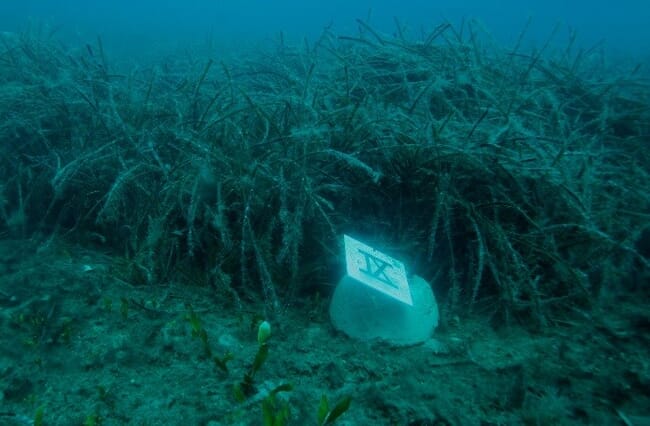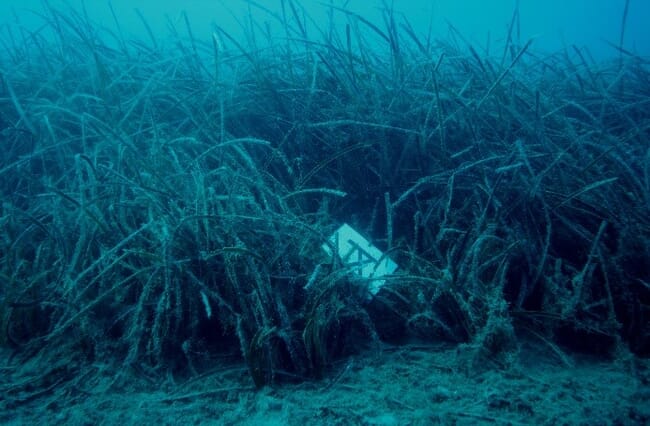The study, undertaken by a team of academics from the Marine and Environmental Research (MER) Lab in Cyprus and the University of Plymouth, looked at the health of a number of seagrass meadows off Cyprus and its results have been published in the latest issue of the journal Marine Environmental Research.
As the authors of the study observe, wastes from finfish aquaculture have damaged seagrass meadows worldwide, but in Cyprus – despite the growth of aquaculture and the fact that Posidonia is at its upper thermal limits as the region’s sea temperatures increase – it still forms extensive meadows all around the island. As a result, understanding this isolated population may be important for the long-term survival of the species.


When farming of sea bass and sea bream began around Cyprus in the mid-1990s, cages were moored directly above seagrass beds, but as production expanded they were moved into deeper water further away from the meadows. This study involved monitoring the health of seagrass meadows near fish farms that had been moved into deeper waters, as well as near a decommissioned fish farm site. Results showed that declines in the meadows were most pronounced at a site that was the most distant from mariculture activities but close to other anthropogenic pressures and the results suggest that moving fish farms away from P. oceanica has helped ensure recovery of the meadows.
Consequently, Professor Jason Hall-Spencer, one of the co-authors of the paper, believes the study has reached some fundamentally important – and very positive – conclusions.
“I am in no doubt that this research is fundamentally important for two reasons,” he told The Fish Site. “Firstly, it helps us understand the ecology of seagrass at its upper thermal limits. To me, it is a mystery - and a ray of hope - why is Posidonia doing so well at the very high summer sweater temperatures that hit Cyprus nowadays? It is vital that we understand and protect this population of such an iconic and important marine plant, it may be critical to the survival of the species as the Mediterranean continues to warm and be hit by marine heat waves. Secondly, this is a very good news story as it it shows that sensible management of aquaculture practices, based on sound science, has helped marine life recovery. We can farm food sustainably, and boost the blue economy, at the same time as securing healthy coastal ecosystems”.
Demetris Kletou, director of MER Lab and lead author of the paper, points out that this study is the first to establish fixed plots at the meadows’ deeper limits around fish farms off Cyprus, allowing microscale and standardised monitoring of seagrass meadows from the same positions over long time scales, removing the effects of intra-meadow variance and sampling uncertainties, and providing a robust tool for aquaculture managers.
“Results after five years of monitoring show that, despite the odds, the endemic seagrass has been progressing at all monitoring sites,” he said.
Meanwhile Ioannis Savva, a researcher at MER Lab and co-author in the paper, believes that the physical characteristics of the study area were critical in reducing the impacts of the mariculture facilities on P. oceanica.
“Knowledge of the physical parameters of an area play a key role in the management of aquaculture installations,” he said.




